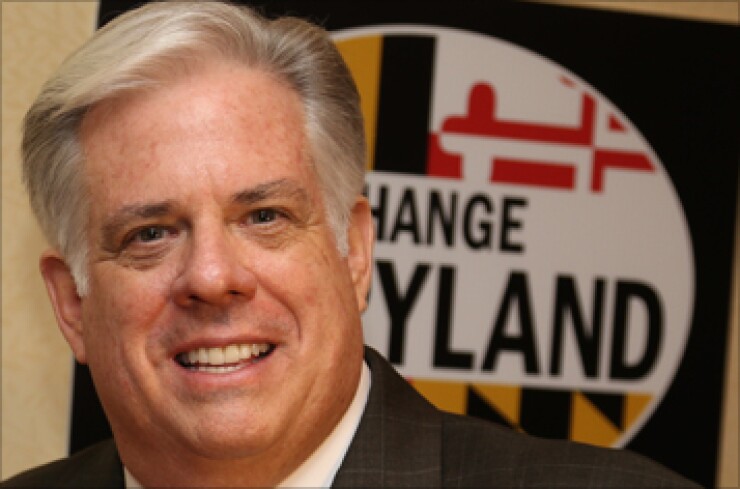
DALLAS – Maryland Gov. Larry Hogan's top legislative priority in 2017 is getting the General Assembly to repeal a new state law requiring highway projects to be scored and ranked before they are funded.
Hogan said Wednesday that he will file emergency legislation before the General Assembly convenes on Jan. 11 that will immediately and totally repeal House Bill 1013, which he dubbed "the Road Kill Bill."
The measure, which passed in April over his veto, would cause the cancellation of 66 of the state's 73 top-ranked highway projects, representing almost $1 billion of work, Hogan said.
"The repercussions of this law are quite simply disastrous for our state," he said. "I will not stop fighting until this catastrophic bill is repealed."
The measure being targeted by Hogan limits the governor's authority to select which projects would be funded by implementing a new process to screen and rank transportation projects on a statewide basis.
The law's "extremely flawed and biased scoring system" means that high-priority transportation projects "will be canceled in every jurisdiction in the state," Hogan said.
"The vast majority of jurisdictions would immediately lose their priority projects," Hogan said. "These are the most desperately needed transportation projects in the state."
Some of the requirements in the measure will go into effect Feb. 10, just a month after the General Assembly convenes. The ranking system is not supposed to be implemented until 2018.
The Democrat-controlled General Assembly passed HB 1013 in March in reaction to Hogan's cancellation of the proposed $3 billion Red Line light rail project in Baltimore in June 2015, two months after the legislative session ended.
Hogan vetoed the road priority bill on April 1, but the veto was overridden by the state Senate by a 29-17 vote and by the House of Delegates by a margin of 88-52.
Hogan, a Republican, was elected governor in 2014 in an upset. He won office with a platform of favoring the funding of highways over transit and emphasizing suburban roads over urban projects.
The new law requires the Maryland State Highway Administration and the Maryland Transit Administration to use a nine-point system to evaluate and rank transportation projects that cost more than $5 million.
The Maryland Department of Transportation can seek funding for a lower-ranked project rather than a one with a higher score, but the state transportation secretary must provide a written explanation to the General Assembly explaining why the project with a lower rating was selected.
Previously, the governor and transportation secretary decided which transportation projects would be included in the annual executive budget submitted to the General Assembly.
"It will wreak havoc on the entire state transportation system and usurp important authority away from local governments and away from the executive branch of state government, giving authority instead to lobbyists and special interest groups," Hogan said of the new system.
The project evaluation system promotes fiscal accountability while retaining the governor's flexibility in project selection, said Maryland House Speaker Michael D. Busch, a Democrat from Anne Arundel County.
"The people of Maryland want a transparent government where they understand how politicians are spending their money," Busch said. "The law requires the governor to simply explain his spending decisions, not hide behind them."
Maryland Transportation Secretary Pete Rahn said the ranking system would doom many important local projects.
"The one-size-fits-all ranking system mandated by this law is wrong for Maryland drivers ... and wrong for Maryland taxpayers who expect their dollars to be spent in a fair and equitable manner on projects that will improve their daily lives," he said.





